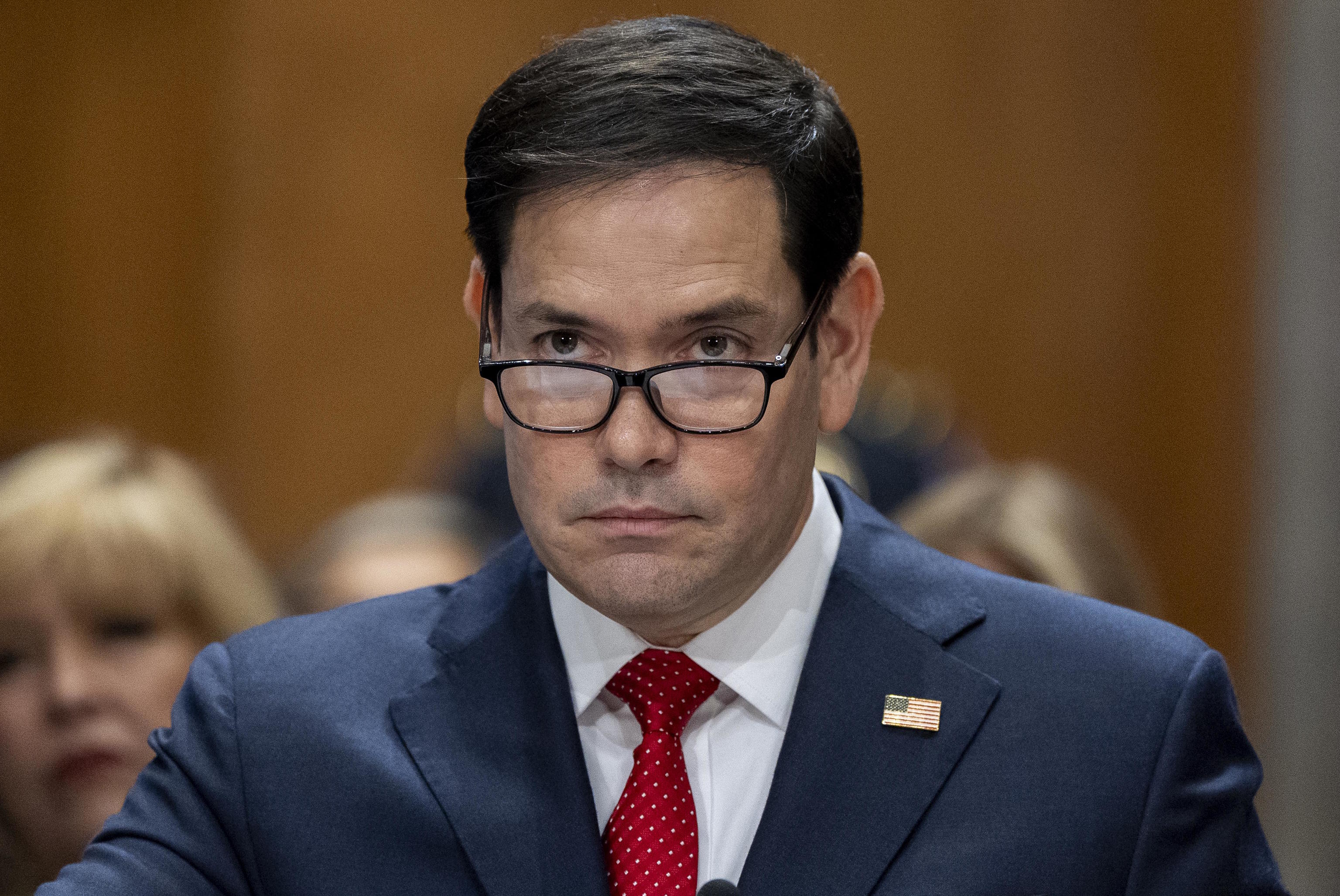In 2020, within a span of less than a month and a half, the Chinese government sanctioned the then Florida senator, Marco Rubio, twice. The first time was for promoting a bill that banned officials from the Chinese region of Xinjiang from entering the United States due to their role in the repression against the Uighur Muslim minority. Later, Beijing targeted Rubio for supporting the democratic movements in Hong Kong.
Both Beijing and Washington often resort to these sanctions, which are more symbolic than effective because they usually boil down to simply banning entry into the countries. But in Rubio's case, they now carry special significance: the new Secretary of State of the United States, the head of diplomacy under Donald Trump, a key figure in the future of relations between the two superpowers, is currently banned from setting foot in China.
In Beijing, there has been much speculation in recent days about whether the sanctions imposed on Rubio will soon be lifted. "I don't want to be paranoid, but I'm starting to think they don't like me", Rubio sarcastically remarked five years ago upon learning about these sanctions.
The Republican was right about one thing back then: he is one of the American politicians most despised by the ruling Chinese Communist Party (CCP). Rubio has been one of the most vocal critics of the Chinese regime, and in Beijing, his appointment has been interpreted as a very clear signal that the Trump administration will take a tough stance against the world's second-largest economy.
"China is the most powerful and dangerous adversary this nation has ever faced", Rubio declared last Wednesday in his first hearing after assuming office. A few days earlier, the new Secretary of State already made headlines by stating that the Asian giant was the "greatest threat" to Washington.
"I hope it behaves well and plays a constructive role in the future of relations between the Chinese and American people," Chinese Foreign Minister Wang Yi reproached Rubio a few days ago. They had a phone conversation in which the Republican toned down his rhetoric, following Trump's lead, but made it clear to his counterpart that his government will promote its interests by "putting the American people first."
Another sign of the aggressive strategy Rubio will adopt towards China was evident in the first foreign policy act of the Trump administration. Just hours after formally accepting his new position, Rubio met with his allies in the Indo-Pacific. In Washington, he hosted the Foreign Ministers of the Quad group, the security alliance formed by the United States, India, Japan, and Australia that aims to counter China's advancement in the region.
Rubio's first meeting was with Indian Minister Subrahmanyam Jaishankar, from the country that will host the Quad leaders' summit this year, a bloc that was revived precisely during the first Trump administration after nearly a decade of inactivity. The Quad, established in 2007 as a partnership focused on humanitarian aid, climate change, and maritime security, has evolved into what Beijing views as an attempt by Washington to create an "Asian NATO."
With Joe Biden in the White House, meetings between the top diplomats of Quad countries have increased, turning the summits into defense forums to address China's assertiveness, the threat to Taiwan, and Beijing's territorial claims in the disputed waters of the South China Sea.
Another significant regional player in this scenario is the Philippines, which has a long-standing confrontation with Chinese forces over a handful of islets and reefs. Rubio also spoke with his Filipino counterpart, Enrique Manalo, to underscore "US commitments under the mutual defense treaty." The American condemned Beijing for its "dangerous and destabilizing" actions.
During his hearing on January 15, Rubio criticized China's global ambitions and its "aggressive naval activities", accusing Xi Jinping's regime of violating Hong Kong's autonomy. He also stated that the United States had to support Taiwan's participation in international organizations.
"Trump wants to harm Beijing as a negotiation tactic to achieve better deals for the US economy. But Marco Rubio's anticommunist credentials mean that the State Department's daily diplomacy towards China could become more aggressive and less inclined towards consultation and dialogue," says Neil Thomas, a researcher on Chinese politics at the Asia Society Policy Institute's China Analysis Center, a Washington-based think tank.
Rubio's tough stance towards China in recent days contrasts with the measured tone that Trump himself is currently using. In an interview on Thursday with Fox News, Trump stated that his conversation the previous week, before his inauguration, with Chinese leader Xi Jinping had been "friendly" and that he is confident in reaching a trade agreement with China despite its tariff threats. "I have always had a great relationship with President Xi Jinping", he added in another virtual interview at the Davos forum.
